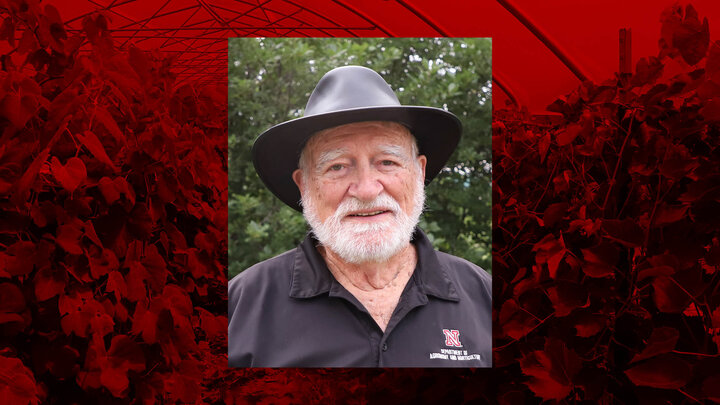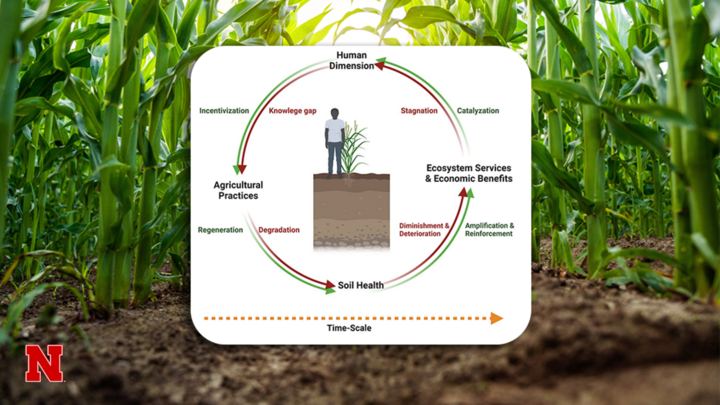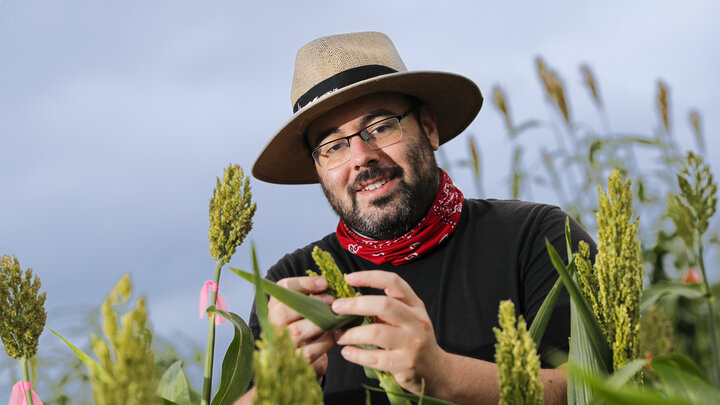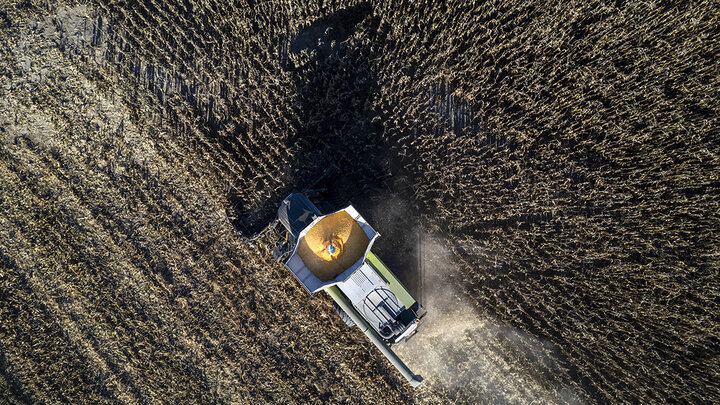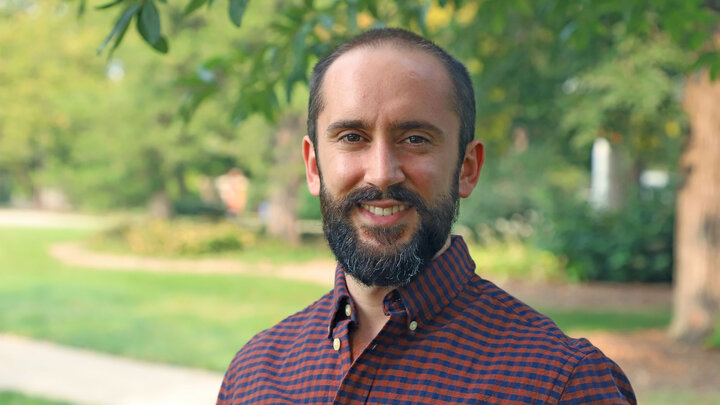Paul Read, professor in the Department of Agronomy and Horticulture, retires May 31, 2025, after a 38-year career at the University of Nebraska–Lincoln.
On a 65-acre subsistence farm in Canandaigua, New York, a young Paul Read planted and harvested vegetables and pulled weeds in the garden alongside his mother while his two older brothers had the privilege of planting and harvesting hay, corn, dry beans and cabbage on the farm. That little boy swore he would never pull weeds again, but after nine years of higher education with 3 ½ years of extension work in between and a 58-year career in enology and viticulture, Read never truly escaped weed pulling.
Today, Read is revered internationally for his tissue culture research for horticulture crop improvement and for his research on vineyard management issues that have supported Nebraska’s developing grape and wine industry.
Read earned both his bachelor’s in extension education and his master’s in vegetable crops from Cornell University in 1959 and 1964, respectively. He planned to teach at a two-year technical school or junior college upon graduation but there were very few opportunities. Even after sending letters to every land grant institution with a horticulture department in search of a teaching position, Read could not find a teaching job. He then pursued doctoral studies at the University of Delaware where he taught a few classes, conducted research involving growth regulators in tomatoes and dahlias and worked with irrigation techniques. In 1967, he graduated with his doctorate in biological science and horticulture.
Upon graduation, the University of Minnesota Duluth offered Read a position managing a research station and teaching classes in the biological sciences, but as he prepared to move, the university rescinded that offer. Instead, they asked him to teach plant propagation and other courses at the University of Minnesota – St. Paul Campus and oversee the development of an irrigation research farm.
During his time at the University of Minnesota, Read went on a quarter leave to Homestead Subtropical Research Station in Homestead, Florida to conduct research on tomatoes. He also took a sabbatical to Nottingham England, where he studied the ecological physiology of vegetable growth. He remained at the University of Minnesota for 20 years.
In 1987, the University of Nebraska–Lincoln appointed Read as head of the Department of Horticulture, a role he held for ten years. Throughout his time as department head, he remained actively involved in teaching. Although many encouraged him to pursue a deanship, Read declined each offer, saying he might consider such a role later in his career. Ultimately, he chose to remain focused on his passion for working with students and plants rather than transitioning into administration.
Read is known internationally for his innovations in tissue culture and as an authority on stock plant influence on propagation success. He assisted in setting up international symposia on plant tissue culture and propagation in Australia, Belgium, the United States and Germany, and has consulted with and lectured at universities in China, Thailand, Morocco, Zambia, England and Belgium.
In 1994, the establishment of Cuthills Vineyards in Pierce, Nebraska sparked the start of a flourishing grape and wine industry in the state, and Read wanted to be a part of it. He is renowned in the United States for his research and educational ambitions covering enology and viticulture through vineyard floor management, trellising, high tunnel grape production, the impact of crop load on grape and wine quality, as well as broader horticultural topics like cultivar, genotype and disease management.
In addition to his research and mentorship contributions, Read was an educator with a passion for teaching. In his 38 years at Nebraska, he taught physiology of horticultural crops, plant tissue culture, vegetable crop production, fruit production and his popular viticulture course Vines, Wines and You. He also organized the first annual Nebraska Grape and Small Fruit Field Day in 2000.
Over the course of his career, Read extended his talents and expertise to several organizations. His largest involvement was with the American Society for Horticultural Science. He served on 28 committees, working groups and positions within ASHS, including the role of president from 2005 to 2006.
He served on the board of directors for the American Society of Enology and Viticulture – Eastern Section, the Mari Sandoz Heritage Foundation and the Omaha Botanical Gardens, and is still an active member of ASEV-ES. He also served as charter member, journal editor and president of the Plant Growth Regulation Society of America, and president of the American Chestnut Foundation, of which he was a founding member.
Read served as the interim director of the Nebraska Statewide Arboretum and has been involved in the American Wine Society, the Australian Society of Viticulture and Oenology, the International Plant Propagators Society, the American Horticultural Society, the Royal Horticulture Society, the International Association of Plant Tissue and Organ Culture and the Nebraska Ag Relations Council.
Throughout his career, Read developed an impressive research portfolio, with numerous publications, complete with supplements, textbooks, articles and special invited chapters.
He credits his productivity and publications to the amazing graduate students he worked with in Minnesota and Nebraska.
“I am more a product of the people that I have worked with than of my own smarts,” Read said. “I want to be remembered for my extensive work with graduate students, because working alongside them was a crucial part of my professional career and legacy. I believe that graduate students are one of the best avenues to achieving meaningful research.”
Read was recognized often for his contributions to higher education and his field. He received Nebraska’s Darrell W. Nelson Excellence in Graduate Student Advising Award in 2012 for his mentorship of over 80 master’s and doctoral students. He also received the ASHS Outstanding Graduate Educator Award, the Nebraska Winery and Grape Growers Pioneer Award, the President’s Citation in recognition of Outstanding Service in the Field of Horticulture by Pi Alpha Xi and the UNL Horticulture Club and the ASEV-ES Distinguished Service Award.
While Read said he does not have a specific plan for how he will spend his time following his retirement, he intends to remain a lifelong learner in enology and viticulture through his vineyard consulting business, Paul Read LLC, short-term teaching opportunities and traveling to conferences. This summer he plans to attend the ASEV-ES Annual Meeting in Athens, Georgia, as well as the ASHS Annual Conference in New Orleans.
Read attended his first ASHS Annual Conference in 1965 as a graduate student at the University of Illinois. He, his wife and three kids camped in a tent on campus and survived on peanut butter sandwiches for the duration of the conference. In 61 years, Read has never missed an ASHS conference.
In January, he will attend the International Cool Climate Wine and Grape Symposium in New Zealand. Afterwards, he intends to visit friends he worked with in Tasmania and Victoria, Australia on faculty development leaves years ago to rekindle friendships and continue learning about Australia’s wine industry.
